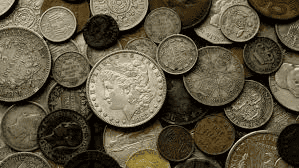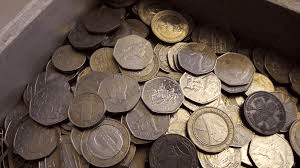You’ll find something interesting on the reverse of a 50 pence coin before you use it. The sovereign is on one side, but the reverse has a nice piece of artwork. The Royal Mint can use the fifty pence coin to commemorate an historical event, or celebrate a special occasion. You should be very excited if you find a Tower that is wrapped in flowers. This is a rare Kew Gardens coin and could fetch much more than the actual fifty pence value. Don’t put your coins in vending machines, because you might be losing a rare and valuable coin! It has been a tradition for centuries to collect coins. What is the origin of this special form of collecting?

This is not about saving or hoarding, but rather collecting coins for their aesthetic value or artistic appeal. In the Roman Empire, for example, we know from archaeological evidence that some collections were used by teachers and scholars as examples of the times and to record them. The Roman Empire made coins to commemorate victories for Generals and Senators, the coronation or a new Emperor. Caesar Augustus, the Emperor at the top of the chain in collecting, was a fanatic who would display his collection whenever he hosted a party. For Coin Dealers UK, go to gmcoins.co.uk
After the fall of Rome, civilisation took a step back and bartering became more popular. There was no structure in Europe to govern it and everyone had to do things for themselves. In the Middle Ages, things settled down. The Age of Kings brought back the use of coins. As Augustus, it was a custom for a King to collect coins. The Lords and Ladies soon followed. The main reason was to show off. “Oh, darling, I collect coins because I don’t need to spend them…” It’s easy to see why coin collection became known as “the hobby of Kings”.

Coin collecting is a modern hobby that dates back to the Renaissance and the 14th century. Initially, it was the upper classes who were interested in it, as they had the money to do so. Petrarch is regarded as the founding father. Petrarch wrote, “He searches in vain for the heavenly beauty …” and Numismatists will be able to relate as they try to find those elusive coins. Petrarch’s aristocratic friends soon joined him and began collecting coins. Pope Boniface VIII and Elector Joachim II were soon searching the streets and fields of Brandenburg for coins. They had servants to do that, but you get the picture.